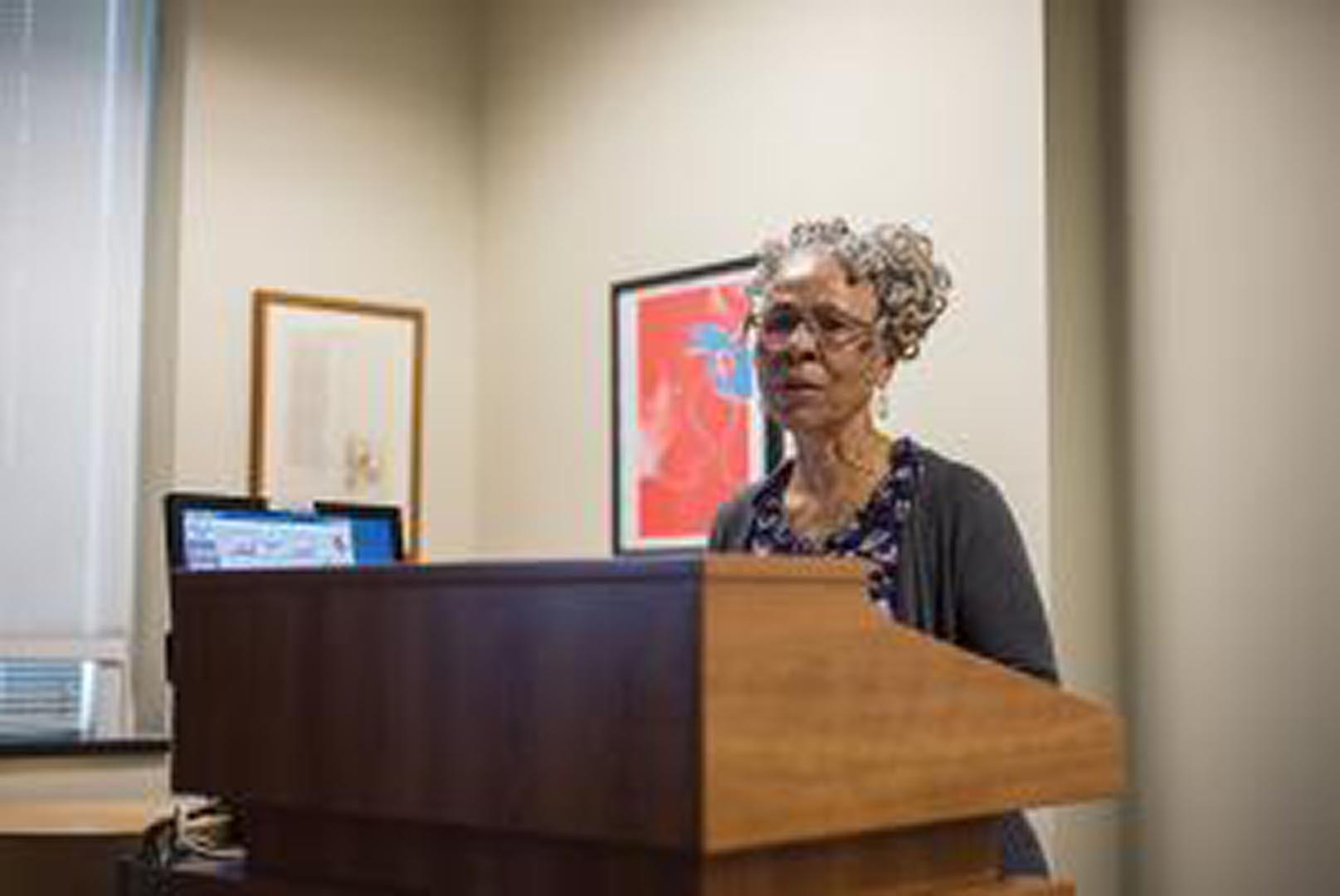Faculty, Students Break Down Race Relations While Reflecting On Selma
March 10, 2015

English Professor Mary Helen Washington presented at an African Disapora Reading Group meeting on race relations in the wake of Selma anniversary.
By Jessica Nocera, The Diamondback
In 1965, Amelia Boynton Robinson was on the front lines of the march for voting rights on Selma, Alabama — a day known as “Bloody Sunday” for the violence that ensued.
50 years later, on Saturday, she once again led a crowd on a march through Selma, but this time there were no beatings or gas canisters.
This university’s African Diaspora Reading Group sought to dissect what has changed and what hasn’t in the last 50 years at “Selma: The Cinematic Text in the Moment of Ferguson.” About 30 people showed up for the event in Tawes Hall to watch faculty and student performers discuss Selma’s legacy and its relationship with modern race relations.
The inspiration for the event came from two sources: the recent events in Ferguson, Missouri and the release of Selma, an Academy Award-nominated retelling of the historical march, event organizers said. ...
The event featured an interdisciplinary group of university professors, who discussed the film as well as the history of the Civil Rights Movement. One of the speakers, Mary Helen Washington, an English professor and the reading group’s adviser, had the idea to host the event after viewing the film.
Washington’s presentation, “Selma in the Literary Imagination,” focused on power of the written word and the heavy effect it can have on readers. The purpose was to stray away from the visual image of the film and give a literary perspective on Selma.
“Living in a culture that is so dominated by the visual image, we sometimes need to resist it because can disrupt the way we look at the world,” she said.
To read more, click here.

